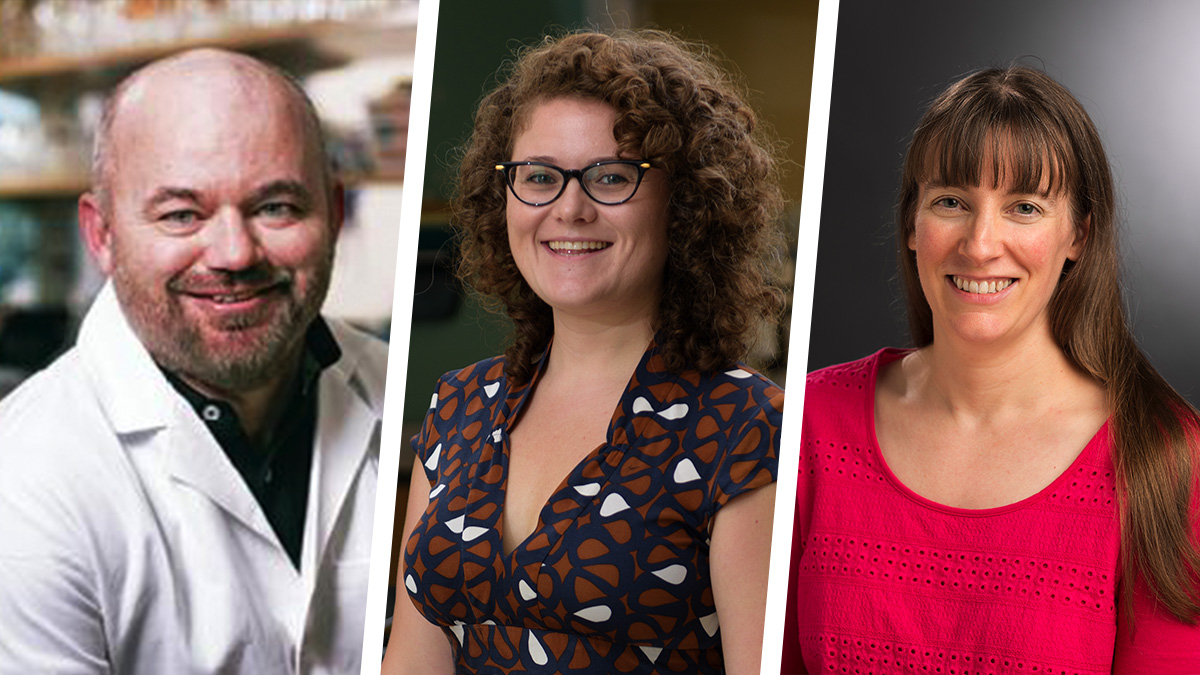
Jul 08, 2021
A new five-year, $1.27 million grant from the National Institutes of Health (NIH) will help transform the study of quantitative- and data-intensive biosciences at the Georgia Institute of Technology.
The grant will create the Integrative and Quantitative Biosciences Accelerated Training Environment (InQuBATE) Predoctoral Training Program at Georgia Tech. InQuBATE is designed to train a new generation of biomedical researchers and thought leaders to harness the data revolution.
“We want to improve and enhance the training of students to focus on biological questions while leveraging modern tools, and in some cases developing new tools, to address foundational challenges at scales from molecules to systems,” said Joshua Weitz, professor and Tom and Marie Patton Chair in the School of Biological Sciences. Weitz is co-leading the program with Peng Qiu, associate professor in the Wallace H. Coulter Department of Biomedical Engineering at Georgia Tech and Emory University.
Biology is undergoing a transformation, according to Weitz and Qiu, requiring a new educational paradigm that integrates quantitative approaches like computational modeling and data analytics into the experimental study of living systems.
“Our intention is to develop a training environment that instills a quantitative, data-driven mindset, integrating quantitative and data science methods into all aspects of the life science training pipeline,” added Weitz, founding director of Tech’s Interdisciplinary Graduate Program in Quantitative Biosciences (QBioS).
The roots of InQuBATE go back to the fall of 2016, shortly after QBioS was launched. Weitz saw an opportunity to augment what he was teaching in his cornerstone course, Foundations of Quantitative Biosciences, in which students model living systems from the molecular level up through cells, organisms, populations, and ecosystems. In doing so, students “got a brief introduction to implementing high-dimensional data analytics, visual analytics, clustering, and modern machine learning methods. But we couldn’t cover allthose topics in detail,” Weitz said.
So, he reached out to Qiu, who was teaching data analytic methods in his Machine Learning in Biosciences course: “Instead of us developing that class, we started strongly encouraging QBioS students to take Peng’s class,” Weitz said.
“For me, this was a great opportunity to work with students from the biology side who had real interests in learning data mining and machine learning, as well as students from the engineering side,” said Qiu, principal investigator in the Machine Learning and Bioinformatics Lab in Coulter BME. “We could see that it was a great learning environment and the QBioS students really excelled in the class. That gave us confidence. Now we’re building this [InQuBATE] training program, and hope it will foster even greater cross pollination.”
The training program is designed to do exactly that, bringing together students and faculty from three Georgia Tech colleges: computing, engineering, and sciences. That combination of expertise is reflected in the leadership team. In addition to principal investigators Weitz (College of Sciences) and Qiu (College of Engineering), the faculty leadership team includes Elizabeth Cherry (School of Computational Science and Engineering, College of Computing), Eva Dyer (Coulter BME, College of Engineering and Emory School of Medicine), and Marvin Whiteley (School of Biological Sciences, College of Sciences).
The InQuBATE program will ultimately support 15 Ph.D. students over five years. The first cohort — prioritizing second-year Ph.D. students — will be selected in August. Next spring, the program will begin soliciting applications from first-year Ph.D. students.
“The program will extend the breadth of student training without adding time to the Ph.D.,” Weitz said. “For students on the engineering or computing side, InQuBATE will augment their living systems research experience. For students on the living systems side, the program will augment their training in modeling and data analytics.”
Weitz, Qiu, and their collaborators also are developing a series of semester-long and short-form (a week or less) courses that will be available to other graduate students, in addition to the InQuBATE cohorts.
“We intend to make programmatic offerings available to a broader community,” Weitz said. “In the long term, we hope InQuBATE takes on a central role in shaping the culture of integrative approaches in the study of living systems at Georgia Tech.”
